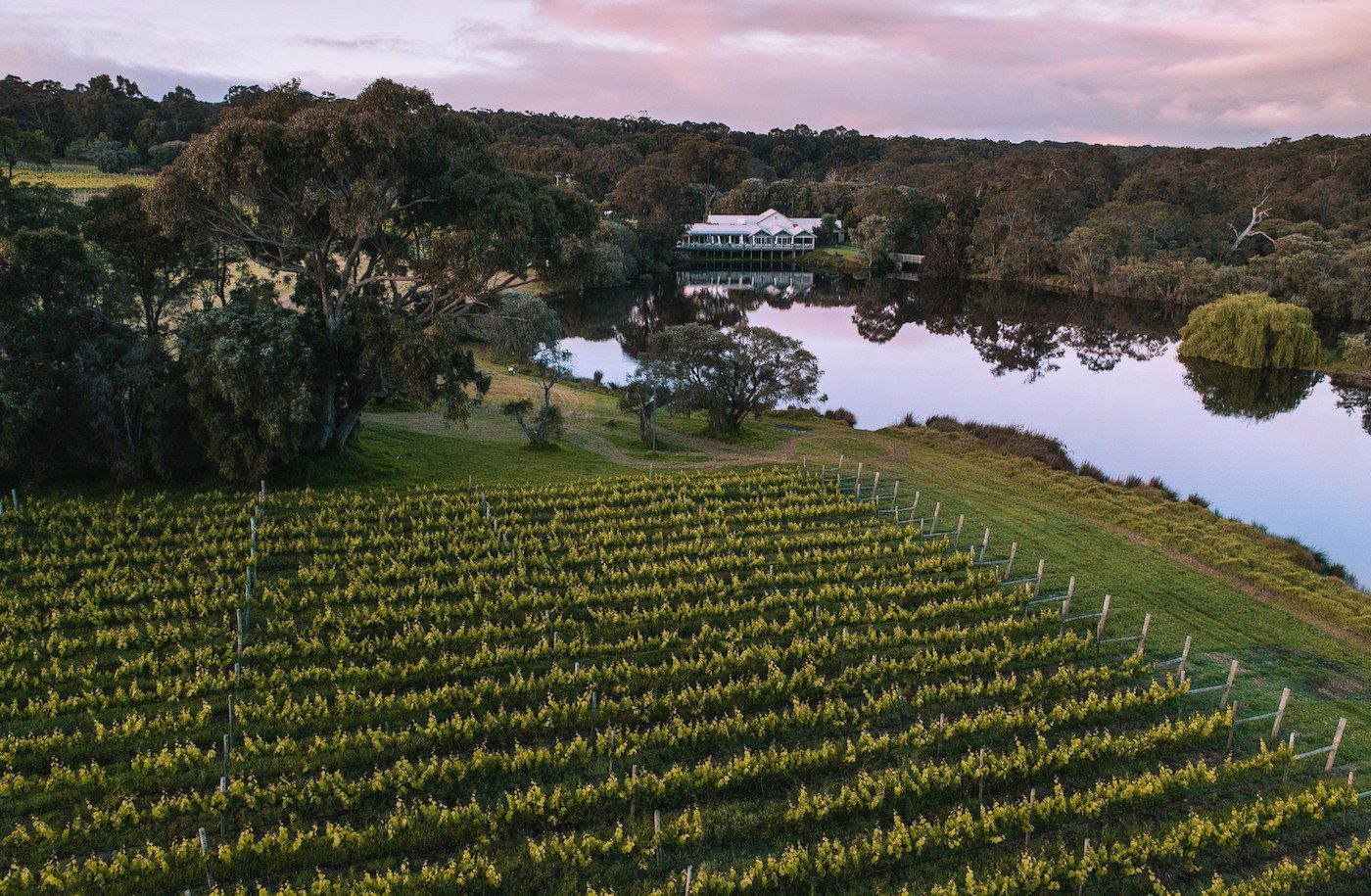Organic Wines - A New Era for Australia
The Australian wine industry has long been recognised for its innovation, quality, and unique terroirs that produce some of the world’s finest wines. In recent years, there has been a noticeable shift in focus towards sustainability and environmental stewardship, giving rise to a growing trend: organic wine. With an increasing demand for healthier, more environmentally friendly products, organic wine is becoming a staple in Australian vineyards and on the tables of discerning wine consumers.

What is Organic Wine?
Organic wine is made from grapes grown without synthetic pesticides, herbicides, fertilizers, or genetically modified organisms (GMOs). Instead, organic viticulture relies on natural processes and products to manage pests and diseases, such as composting, cover crops, and natural pest predators. In addition to organic farming practices, the winemaking process itself must adhere to strict regulations, limiting the use of certain additives and processing aids. This holistic approach aims to protect the environment, enhance biodiversity, and produce wines that are a true expression of their terroir.
In Australia, organic wine production is certified by organizations such as Australian Certified Organic (ACO) and NASAA Certified Organic (NCO). These certifying bodies ensure that vineyards and wineries comply with stringent organic standards, giving consumers confidence that the wine they are purchasing is genuinely organic.

Why Organic Wine?
The shift towards organic wine production in Australia has been driven by multiple factors, including environmental sustainability, consumer demand, and the quest for quality. Here are a few reasons why organic wine has gained traction in the Australian wine industry:
-
Environmental Sustainability: One of the primary motivations for adopting organic practices is to reduce the environmental impact of viticulture. The use of synthetic chemicals can lead to soil degradation, loss of biodiversity, and contamination of water sources. By opting for organic methods, winemakers are promoting healthier ecosystems, improving soil fertility, and reducing carbon footprints.
-
Consumer Health and Preferences: With growing concerns over the use of chemicals in food and beverages, many consumers are gravitating towards organic products. Organic wine is perceived as a healthier choice because it is made without synthetic pesticides and often contains lower levels of sulfites, which can cause adverse reactions in some individuals. Health-conscious wine drinkers appreciate the transparency and natural approach of organic winemaking.
-
Superior Taste and Quality: Organic wine is often praised for its superior taste and authenticity, reflecting the true characteristics of the grape and the terroir. By minimizing external inputs and interventions, organic winemakers allow the unique flavors of the region to shine through, resulting in wines that are expressive, complex, and true to their origins.
The Benefits of Organic Wine for Australian Winemakers
The move towards organic wine production offers a myriad of benefits for Australian winemakers. Chief among them is the improvement in soil health and vineyard biodiversity. By avoiding synthetic chemicals, organic vineyards foster a healthier ecosystem, where beneficial insects and microorganisms thrive. This biodiversity not only helps control pests naturally but also contributes to healthier grapevines that are more resilient to diseases and extreme weather conditions.
Another significant advantage is the increased market demand for organic products. As consumer awareness of sustainability and health issues grows, so too does the appetite for organic wine. Many Australian winemakers have noted that organic wines command a higher price point and attract a more loyal customer base, especially among younger, eco-conscious consumers. By tapping into this trend, Australian winemakers can differentiate their products in a crowded market and enhance their brand reputation.
Additionally, organic winemaking aligns with broader sustainability goals. Climate change poses a considerable threat to the Australian wine industry, with rising temperatures and unpredictable weather patterns impacting grape quality and yield. Organic farming practices, such as soil regeneration and water conservation, help mitigate these effects, making vineyards more resilient to climate change. As a result, organic winemaking can be seen as a proactive strategy for securing the future of the industry.
What are the Benefits of Organic Wine for Consumers?
For consumers, the appeal of organic wine lies in its perceived health benefits and superior quality. Organic wines are typically lower in sulfites and other additives, which are often used in conventional winemaking to stabilize the product and extend shelf life. While sulfites are generally considered safe, they can cause allergic reactions in some individuals, making organic wines a preferred choice for those seeking a more natural option.
Moreover, the absence of synthetic chemicals in organic wine production means that consumers are less likely to ingest pesticide residues. This is an important consideration for health-conscious drinkers who want to avoid the potential health risks associated with exposure to synthetic pesticides and herbicides.
From a sensory perspective, many wine enthusiasts believe that organic wines offer a truer expression of the vineyard’s terroir. Without the interference of chemical inputs, the flavors of the grapes and the characteristics of the soil and climate are allowed to shine through, resulting in wines that are distinctive and reflective of their origin. This authenticity is highly valued by consumers who are seeking a more artisanal and transparent wine experience.
Characteristics of Organic Wine
Organic wines are often described as having a distinct purity of flavour, with characteristics that are closely linked to the natural environment where the grapes are grown. Because these wines are made with minimal intervention, they tend to have a fresher, fruit forward profile, showcasing the inherent qualities of the grape varietals. Common descriptors for organic wines include vibrant acidity, pronounced minerality, and a sense of place or “terroir.”
Organic red wines, such as Shiraz and Pinot Noir, are known for their intense, unadulterated fruit flavors and complex tannin structures. White wines, like Chardonnay and Sauvignon Blanc, often exhibit crisp, clean profiles with a more pronounced expression of the grape’s natural aromas and flavors.
It’s important to note that organic wines can vary greatly depending on the winemaking style and the specific practices of the vineyard. Some organic winemakers may also choose to adopt biodynamic principles or natural winemaking techniques, further enhancing the unique qualities of their wines.
Who are Winemakers in Australia Leading Organic Wine Production?
Several Australian winemakers have embraced organic viticulture, leading the way in this burgeoning sector with their commitment to quality and sustainability. Here are a few trailblazers making a significant impact:
Cullen Wines (Margaret River, Western Australia): One of Australia’s pioneers in organic and biodynamic winemaking, Cullen Wines is a family-owned winery known for its high-quality, sustainably produced wines. Under the leadership of Vanya Cullen, the winery has gained international acclaim for its biodynamic practices, which emphasize soil health and ecological balance.

Vanya Cullen
Gemtree Wines (McLaren Vale, South Australia): Gemtree Wines is an industry leader in sustainable winemaking, operating one of the largest certified organic and biodynamic vineyards in McLaren Vale. Their focus on organic practices has led to a range of award-winning wines that highlight the region’s unique terroir.
Tamburlaine Organic Wines (Hunter Valley, New South Wales): Tamburlaine is one of Australia’s largest producers of organic wine, with a commitment to reducing their environmental footprint. They employ innovative organic farming techniques, such as the use of organic compost and green manures, to enhance soil health and grape quality.
Harkham Wines (Hunter Valley, New South Wales): Harkham Wines is a boutique winery that produces organic, preservative-free wines with minimal intervention. Their philosophy is centered around natural winemaking, allowing the grapes to ferment with indigenous yeasts and without added chemicals, resulting in wines that are pure and expressive.
Angove Family Winemakers (Riverland and McLaren Vale, South Australia): The Angove family has been at the forefront of organic wine production in Australia, with a significant portion of their vineyards certified organic. Their focus on sustainability and innovation has resulted in a diverse portfolio of organic wines that are well-regarded both domestically and internationally.

In Conclusion
The shift towards organic wine in Australia marks an exciting evolution in the wine industry, driven by consumer demand for healthier, more environmentally-friendly products and a desire for wines that are authentic expressions of their terroir. For winemakers, embracing organic practices offers a pathway to sustainability, resilience, and enhanced market appeal. As more Australian vineyards make the transition to organic production, it is clear that organic wine is not just a passing trend, but a sustainable movement that is shaping the future of the industry. Whether you are a seasoned wine enthusiast or a casual consumer, exploring organic wines from Australia is a journey worth embarking on, offering a taste of the country’s diverse landscapes and innovative spirit.



